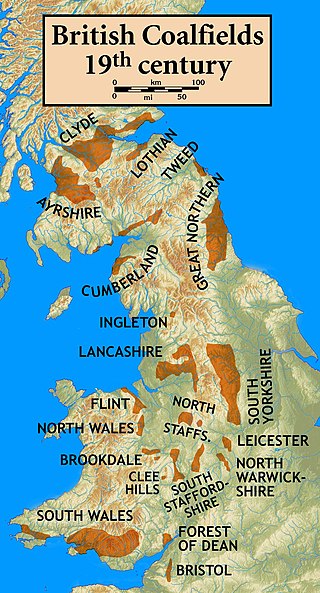
Pitmatic – originally 'pitmatical' – is a group of traditional Northern English dialects spoken in rural areas of the Great Northern Coalfield in England.

James Henry Miller, better known by his stage name Ewan MacColl, was an English folk singer-songwriter, folk song collector, labour activist and actor. Born in England to Scottish parents, he is known as one of the instigators of the 1960s folk revival as well as for writing such songs as "The First Time Ever I Saw Your Face" and "Dirty Old Town".

Steeleye Span are a British folk rock band formed in 1969 in England by Fairport Convention bass player Ashley Hutchings and established London folk club duo Tim Hart and Maddy Prior. The band were part of the 1970s British folk revival, and were commercially successful in that period, with four Top 40 albums and two hit singles: "Gaudete" and "All Around My Hat".

The 1984–1985 United Kingdom miners' strike was a major industrial action within the British coal industry in an attempt to prevent closures of pits that the government deemed "uneconomic" in the coal industry, which had been nationalised in 1947. It was led by Arthur Scargill of the National Union of Mineworkers (NUM) against the National Coal Board (NCB), a government agency. Opposition to the strike was led by the Conservative government of Prime Minister Margaret Thatcher, who wanted to reduce the power of the trade unions.
The radio ballad is an audio documentary format created by Ewan MacColl, Peggy Seeger, and Charles Parker in 1958. It combines four elements of sound: songs, instrumental music, sound effects, and, most importantly, the recorded voices of those who are the subjects of the documentary. The latter element was revolutionary; previous radio documentaries had used either professional voice actors or prepared scripts.
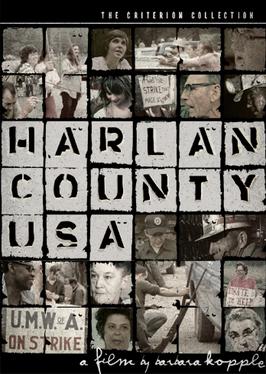
Harlan County, USA is a 1976 American documentary film covering the "Brookside Strike", a 1973 effort of 180 coal miners and their wives against the Duke Power Company-owned Eastover Coal Company's Brookside Mine and Prep Plant in Harlan County, southeast Kentucky. It won the Academy Award for Best Documentary at the 49th Academy Awards.
Industrial folk music, industrial folk song, industrial work song or working song is a subgenre of folk or traditional music that developed from the 18th century, particularly in Britain and North America, with songs dealing with the lives and experiences of industrial workers. The origins of industrial folk song are in the British Industrial Revolution of the eighteenth century as workers tended to take the forms of music with which they were familiar, including ballads and agricultural work songs, and adapt them to their new experiences and circumstances. They also developed in France and the US as these countries began to industrialise.

Below the Salt is the fourth studio album by Steeleye Span and their first after they joined the Chrysalis label. The album takes medieval influence and combines it with the band's British folk rock style. The lineup on the album includes Bob Johnson and Rick Kemp making their debuts in the band. By this point, Ashley Hutchings had left the band, leaving Tim Hart and Maddy Prior as the only remaining founding members.

A strikebreaker is a person who works despite an ongoing strike. Strikebreakers may be current employees, or new hires, who are hired after or during the strike to keep the organization running. In continuing to work, or taking jobs at a workplace under current strike, strikebreakers are said to "cross picket lines".

The Lattimer massacre was the killing of at least 19 unarmed striking immigrant anthracite miners by a Luzerne County sheriff's posse at the Lattimer mine near Hazleton, Pennsylvania, on September 10, 1897. The miners were mostly of Polish, Slovak, Lithuanian and German ethnicities. Scores more miners were wounded in the attack by the posse. The massacre was a turning point in the history of the United Mine Workers (UMW).

Seaton Delaval is a village and former civil parish, now in the parish of Seaton Valley, in Northumberland, England, with a population of 4,371. The largest of the five villages in Seaton Valley, it is the site of Seaton Delaval Hall, completed by Sir John Vanbrugh in 1727.
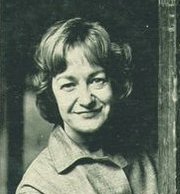
Isla Cameron was a Scottish-born, English-raised actress and singer. AllMusic noted that "Cameron was one of a quartet of key figures in England's postwar folk song revival – and to give a measure of her importance, the other three were Ewan MacColl, A. L. Lloyd, and Alan Lomax". She was a respected and popular folk music performer through the 1950s and early 60s as well as appearing in several films; she focused almost exclusively on her acting career from 1966 onwards. Cameron provided the singing voice for actress Julie Christie's part in the hit 1967 film version of Thomas Hardy's Far From the Madding Crowd, but changed career direction and became a film researcher in the early 1970s before her early death in a domestic accident in 1980. One of the traditional songs in her repertoire, "Blackwaterside", recorded by Cameron in 1962, was subsequently popularised by notable "next generation" U.K. folk music performers Anne Briggs, Bert Jansch and Sandy Denny.

Seghill is a large village and former civil parish, now in the parish of Seaton Valley, located on the Northumberland border which is the county boundary between Northumberland and Tyne and Wear. Seghill is situated between the villages of Seaton Delaval and Annitsford, about 8 miles (13 km) north of Newcastle upon Tyne.
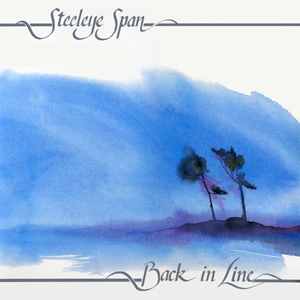
Back in Line is the twelfth studio album by British folk rock band Steeleye Span. The album was released in 1986, after a hiatus of almost 6 years. It is their first album without founding member Tim Hart, who quit the music business entirely. It is also the last album they recorded with Maddy Prior's husband, Rick Kemp, until They Called Her Babylon; Kemp suffered a shoulder injury that forced him to stop playing for a long time.

Betteshanger is a village and former civil parish. now in the parish of Northbourne, in the Dover district, in east Kent, UK, near Deal. It gave its name to the largest of the four chief collieries of the Kent coalfield. In 1931 the parish had a population of 55. On 1 April 1935 the parish was abolished and merged with Northbourne.

Thomas Armstrong (1848–1920), known as Tommy Armstrong, was an English poet, singer-songwriter and entertainer dubbed "The Pitman Poet" and "The Bard of the Northern Coalfield". Writing largely in the Geordie and Pitmatic dialects, he was renowned for his ability to chronicle the lives of the mining communities in and around Stanley in north-east Durham and to commemorate mining disasters.

The Colorado Coalfield War was a major labor uprising in the southern and central Colorado Front Range between September 1913 and December 1914. Striking began in late summer 1913, organized by the United Mine Workers of America (UMWA) against the Rockefeller-owned Colorado Fuel and Iron (CF&I) after years of deadly working conditions and low pay. The strike was marred by targeted and indiscriminate attacks from both strikers and individuals hired by CF&I to defend its property. Fighting was focused in the southern coal-mining counties of Las Animas and Huerfano, where the Colorado and Southern railroad passed through Trinidad and Walsenburg. It followed the 1912 Northern Colorado Coalfield Strikes.
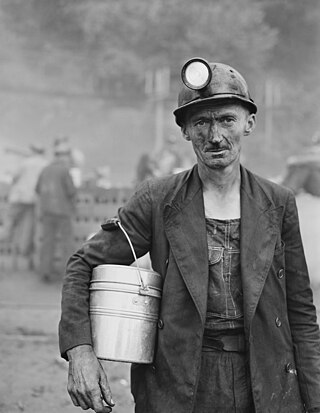
People have worked as coal miners for centuries, but they became increasingly important during the Industrial Revolution when coal was burnt on a large scale to fuel stationary and locomotive engines and heat buildings. Owing to coal's strategic role as a primary fuel, coal miners have figured strongly in labor and political movements since that time.
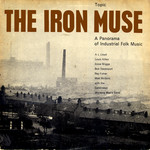
The Iron Muse (A Panorama of Industrial Folk Song) is the title of two albums released by Topic Records, the first as a 12-inch Long Play vinyl record released in 1963 and the other as a CD released in 1993.
The Vancouver Island Coal Miners' Strike was from 1912-1914. The coal miners in the Vancouver Islands refused to go to work, in protest of unsafe working conditions and unfair treatment. They began as peaceful protests, until built up anger caused by strike-breakers, also known as scabs, ruined the effectiveness of the strike and incited aggressive behavior. The militia was forced to step in and shut down the strike.
















